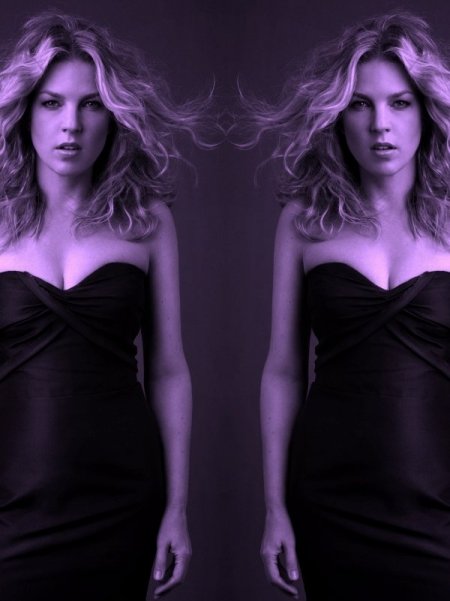At 52, jazz singer Diana Krall is not keeping Quiet
Diana Krall’s latest album, Turn Up The Quiet, is a reflection of her progress in dealing with grief. PHOTO: NYTIMES
PUBLISHEDJUN 21, 2017, 5:00 AM SGT
NEW YORK • On a spring afternoon, Diana Krall sat in an empty Cafe Carlyle, quoting lines from Woody Allen's hit 1986 movie Hannah And Her Sisters in a respectable New York accent.
Krall, the jazz pianist and singer, mentioned a scene in which Allen's character takes a date to see singer-pianist Bobby Short, the Carlyle's longtime cultural ambassador.
Krall met Short more than two decades ago while she was still an aspiring musician. She was then too shy to tell him she played the piano.
"I would just sit in the background, in that chair," she said, pointing to the back of the room.
The Krall of today is not hiding in any corners. Now 52, she is easily the most high-profile female jazz artist of her generation, with a string of gold and platinum albums.
Her film and television projects include an upcoming Amazon series adapting children's book series Pete The Cat. Krall and husband, musician Elvis Costello, 62, voice Pete's parents.
Krall is now eager to engage that veteran stature by mentoring younger musicians.
Today, she will perform at the Beacon Theatre, supporting her latest album, Turn Up The Quiet, a collection of standards released last month that was firmly guided by her artistic authority.
"If she had an idea for something and it felt definite, she would let us know," said drummer Jeff Hamilton, a frequent collaborator who played on the record.
"In the past, she might have said: Is this okay with you guys?"
Quiet is also her last album with producer Tommy LiPuma, who died at age 80 in March.
LiPuma, who first worked with Krall on her 1995 sophomore album, Only Trust Your Heart, was indefatigable to the end, she said.
"He wasn't a frail old man," she noted, adding that he would stay in the studio "as late as possible".
Though the shock has not worn off, Krall has come to see Quiet, which includes songs by Cole Porter, Irving Berlin and Johnny Mercer, as a testament to the values LiPuma embodied for her.
"He took such joy in life," she said.
"He had a tremendous sense of humour and taught me the importance of taking time to be with my family."
Since Krall began a recording career in the early 1990s, her screensiren looks and alluring alto - a voice at once cool and sultry, wielded with a rhythmic sophistication and discretion culled from years of leading with her other instrument - have provided, for some, an aura of unattainable glamour.
But Krall will bluntly point out that she is "hopeless in a gown, because when you sit down at the piano, everything shifts and you just get so frustrated".
When she is recording, visions of actresses Lauren Bacall and Bette Davis may dance in her head.
But she feels more of a kinship with a goofier goddess (and onetime Allen muse), Diane Keaton.
"I can't finish sentences; I go all over the place," Krall said, which is true, to the extent that in her enthusiasm about any given subject - movies, photography and family are consuming interests - she seems eager to leave nothing and no one out.
Discussing the artists she has admired or has been lucky to work with or would like to work with more often - she is less a namedropper than a breathless music nerd, quietly geeking out over the likes of trumpeter Wynton Marsalis and singer Julie London.
Over more than two decades in the public eye, during which she has become half of an atypically durable celebrity couple, and a mother - she and Costello have twin boys, now 10 - she has lost a stream of close relatives and mentors.
Quiet is also a reflection of her progress in dealing with grief.
"It gets to the point where you need to laugh," she said. "And we had so much fun making this record; that's what I hope comes through."
Krall recruited and led three ensembles for the album, one of them featuring bassist John Clayton and Hamilton, who both began working with her when she was 19.
For the singer, the jazz and pop standards on Quiet represent not the past but the enduring.
"It's not about a period of time or a demographic. It's about finding romance in everything, in beauty or in things that are sad."
NYTIMES






No hay comentarios:
Publicar un comentario